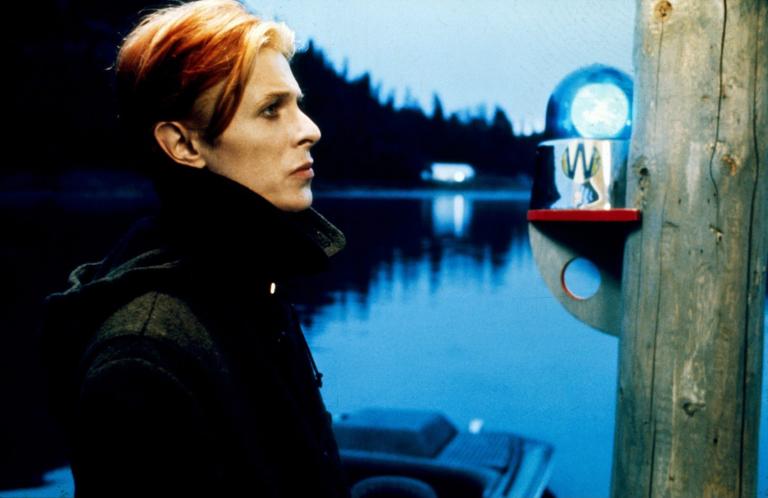Peter Dybing, former first officer of the Covenant of the Goddess, has quit Paganism. Well, sort of. He has left public Pagan life, resigning all of his leadership positions, to focus on his relationship and on being a “simple dirt worshiping Pagan.” Over at the Wild Hunt, Michael York has written a guest post in which he decries Dybing’s resignation as a harbinger of doom: the decline of Paganism and the concomitant destruction of human life on the planet. Honestly, it seems a little alarmist.
But I do wonder if Dybing’s actions are part of a larger movement. Now, Dybing is not really quitting Paganism. He ends his announcement by saying he intends to still attend Pagan events and sit with his friends. He simply wants to move his focus from Pagan community concerns to the immediate issues of his relationship with his partner and the dirt in his backyard. This desire is at least part of the reasons why Glen “Fishbowl” Gordon has adopted the term Postpaganism (or Postpaganry) for his “Backyard Paganism”.
I wonder if this is not part of a larger movement away from the term “Pagan”. A good example is Quagan Hystery deciding, this past February, to retire the term “Pagan” from her blog, while remaining “privately Pagan”:
“My thea/ological perspective has not changed. My admiration for several other individuals who call themselves Pagan has not changed. What has changed, and which has been changing for some time, is my naive belief that my confidence in the legitimacy and meaningfulness of my own definitions of Paganism could outweigh the fact that I stand against much of the most popular and pervasive attitudes and convictions shared by the Pagan authors and communities to which I have access. I am only causing confusion when I continue to use the term. So I will not.”
She subsequently renamed her blog. (I now see she has returned to the old name — I liked it better — and is back to using the term “Pagan” in her writing, which just shows how confusing this issue is.)
There have been others too, to recently “leave Paganism” in one form or another. There’s the producer of Deo’s Shadow Podcast. His link is down now, but you can read Brendan Meyer’s post about Deo leaving Paganism for atheism. Myers writes about his own close call a few years ago:
“Around four years ago I was on the verge of leaving the pagan community myself as well. I was growing increasingly unsatisfied with the way slogans from pop culture substituted for wisdom, and how almost all questions of a philosophical nature were dismissed by an appeal to relativism, or something unexplained like “the mystery”. I was also regularly asked to put my professional stamp of approval on the most banal of ideas, or the most idiotic of lifestyle choices. When I said things that I took to be important and helpful for people’s lives, like “The practice of magic is not what matters” I was accused of being insufficiently spiritual. I got tired of it.
“I had to go deep within my mind to discover what I really did believe, and what things were truly worthy of belief. I had to find again the reasons why I, too, entered the pagan movement, and the reasons why, if at all, I remain a part of it. The end result of that enquiry was “The Call of the Immensity”, published as chapter 5 of my third book.”
Ruby Sara is another who is finding herself “in between” with regard to Neopaganism. Then there’s this guy from the Netherlands whose concise, but well-articulated answer to why he is leaving Paganism is perhaps an indication that this movement is not limited to the U.S.:
“recent events and incidents have convinced me that now there are considerably less commonalities with too many people within this scene, than there are differences, some of these of a rather fundamental nature.”
Even Star Foster at Patheos has announced she is leaving what she calls “mainstream Paganism”, by which she apparently means initiatory Wicca. She writes “I sometimes feel as I have gone from being Pagan to being pagan.” I know the feeling myself. And let’s not forget Drew Jacob and the whole controversy surrounding his shedding the Pagan descriptor.
Now this is hardly a mass exodus. But I wonder if there isn’t something bigger going on here. Maybe this is nothing new. Maybe this is what Paganism is really all about. Star Forster has observed that “Pagans may be the only religious movement obsessed with de-bunking their own religion.”
B. T. Newberg, who runs the Humanistic Paganism community blog has written:
“With such an individualist religion, I wonder how many ever really identify *with* other Pagans. It seems almost more Pagan to disidentify with Pagans. Frankly, I don’t identify at all with other Pagans’ belief in the efficacy/literal truth of magic, astrology, energy-raising, crystals, and so on. I never feel more out of place than at a Pagan convention. And yet, I continue to be fascinated with these or similar practices, though I interpret them on a metaphorical and psychological level. So personal reservations aside, it still makes sense to call me some kind of Pagan.
“But the struggle with labels is fundamentally a struggle with identity, and that implies a journey of self-discovery, and that journey is the primary energizing factor behind a great deal of Pagan paths. So I guess it’s not so surprising that people can get so much mileage out of the Pagan-or-not debate.”
I’ve written this before, but I still wonder if perhaps constantly questioning whether we are Pagan is one of the most “Pagan” things we do.
Or maybe something is really up. Maybe we are experiencing another major shift in the ever-shifting boundaries of “Paganism”. I agree with Star Foster that what looks like “The End” is probably just a new beginning — that usually is the case with these things. Perhaps esoteric Wicca-centric Neo paganismis being pulled apart like an amoeba, and where there was a PanPagan Neo-Wicca, there will be the Polythesistic Pagans on one hand and the Naturalistic Pagans on the other. And maybe one or both groups will find they no longer have any use for the word “Pagan”.













